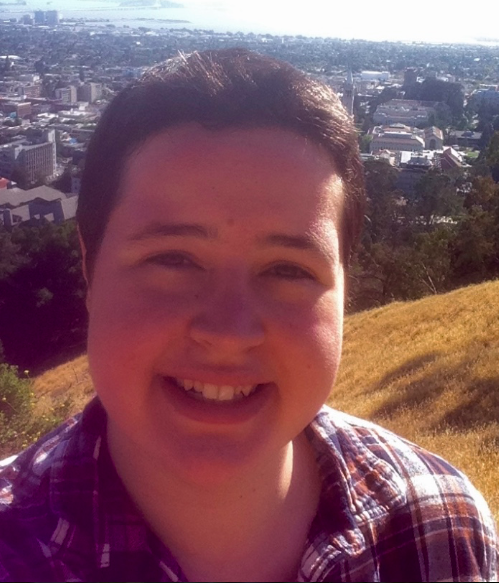Class Year: 2016
Internship Placement: Prison Radio’s San Francisco office. Prison Radio seeks to challenge mass incarceration by amplifying the voices of prisoners. This summer, I hope to work with Prison Radio staff to develop profiles of prisoner correspondents for the website and foster relationships with female and queer correspondents, as well as expand Prison Radio’s social media and internet presence.
What’s happening? We’d love to hear how your internship is going.
I first learned about mass incarceration in America my freshman year at Bryn Mawr when I took a sociology course entitled Punishment and Social Order. This course, which was dedicated to understanding punishment’s role in societies around the world but focused on the development of America’s prisons, opened my eyes both to the widespread economic injustices that facilitated a massive expansion of the American prison system in the past several decades—namely increasing neoliberal, or free market, economic policies—and the daily abuses that are rampant throughout America’s criminal “justice” system. As my understanding of mass incarceration in America grew, so did my anger at the systemic injustices of imprisonment, and my determination to join the ongoing and growing struggle to end mass incarceration.
When looking for summer internship opportunities, I knew that I wanted to work with an organization that not only provided support to current and former prisoners, but helped challenge the institutions of mass incarceration in America. Through a series of internet searches, I found Prison Radio. Prison Radio is an organization dedicated to challenging mass incarceration by amplifying the voices of prisoners. They do this mainly by recording prisoners’ radio addresses and distributing them, both online and to radio stations across the country. Additionally, they work on a variety of other projects as need arises, including helping publish prisoners’ books, providing direct support to prisoners, and engaging in educational campaigns. Since 1992, Prison Radio has worked with Mumia Abu-Jamal, one of the most famous political prisoners in America and author of eight books to date. In recent years, Prison Radio co-produced a new documentary about Mumia, and filed a successful lawsuit to overturn a Pennsylvania law aimed at silencing Mumia and other prisoners.
Prison Radio has two offices—one in Philadelphia, and one in San Francisco. I first became involved with Prison Radio by volunteering at their Philadelphia office once a week last semester, but decided to work at the main office in San Francisco for the summer. For my internship, I have a wide range of duties and, although almost all of my work occurs in the office, no day is the same as the next. I am in charge of compiling and organizing information about upcoming grant opportunities, and sending thank you mailings to donors to keep them involved and up-to-date with Prison Radio’s work. I am also working on expanding Prison Radio’s volunteer and intern base, developing profiles of all of Prison Radio’s correspondents for the website, and helping edit communications sent to Prison Radio’s base of thousands of supporters. Even though I’ve only been at my internship for 3 ½ weeks, I’ve developed a lot of new skills, some of which I expected to learn coming in—such as learning how to use the equipment to record correspondents when they call in to Prison Radio—and some of which I never thought I’d develop—such as teaching myself how to update Prison Radio’s website store. I’m also developing important theoretical knowledge surrounding mass incarceration and activism work. Because Prison Radio’s primary focus is on political prisoners, I am learning a lot about radical movements in America over the past several decades and how the state has strived to repress them. I’m also developing my understanding of how small nonprofits operate, and how people who hope to act in solidarity with marginalized peoples—in the case of Prison Radio, people who are not incarcerated working with current or former prisoners; or white people working with communities of color who are targeted by repressive and violent policing—can engage in social justice work in ways that prioritize the voices and leadership of marginalized people. Prison Radio is built upon the belief that a national discussion about mass incarceration needs to include the voices of prisoners, and our work serves as a microphone for prisoners to speak about the issues that concern them and the injustices that they continue to face. I am grateful to have the opportunity to engage in and learn about this crucial work, and I’m excited for the remaining six weeks of my internship.
 This is a section of a mural hanging on one of Prison Radio’s office walls. It highlights solidarity between a variety of struggles for justice, including environmental, Native American sovereignty, and prisoners’ rights movements.
This is a section of a mural hanging on one of Prison Radio’s office walls. It highlights solidarity between a variety of struggles for justice, including environmental, Native American sovereignty, and prisoners’ rights movements.


